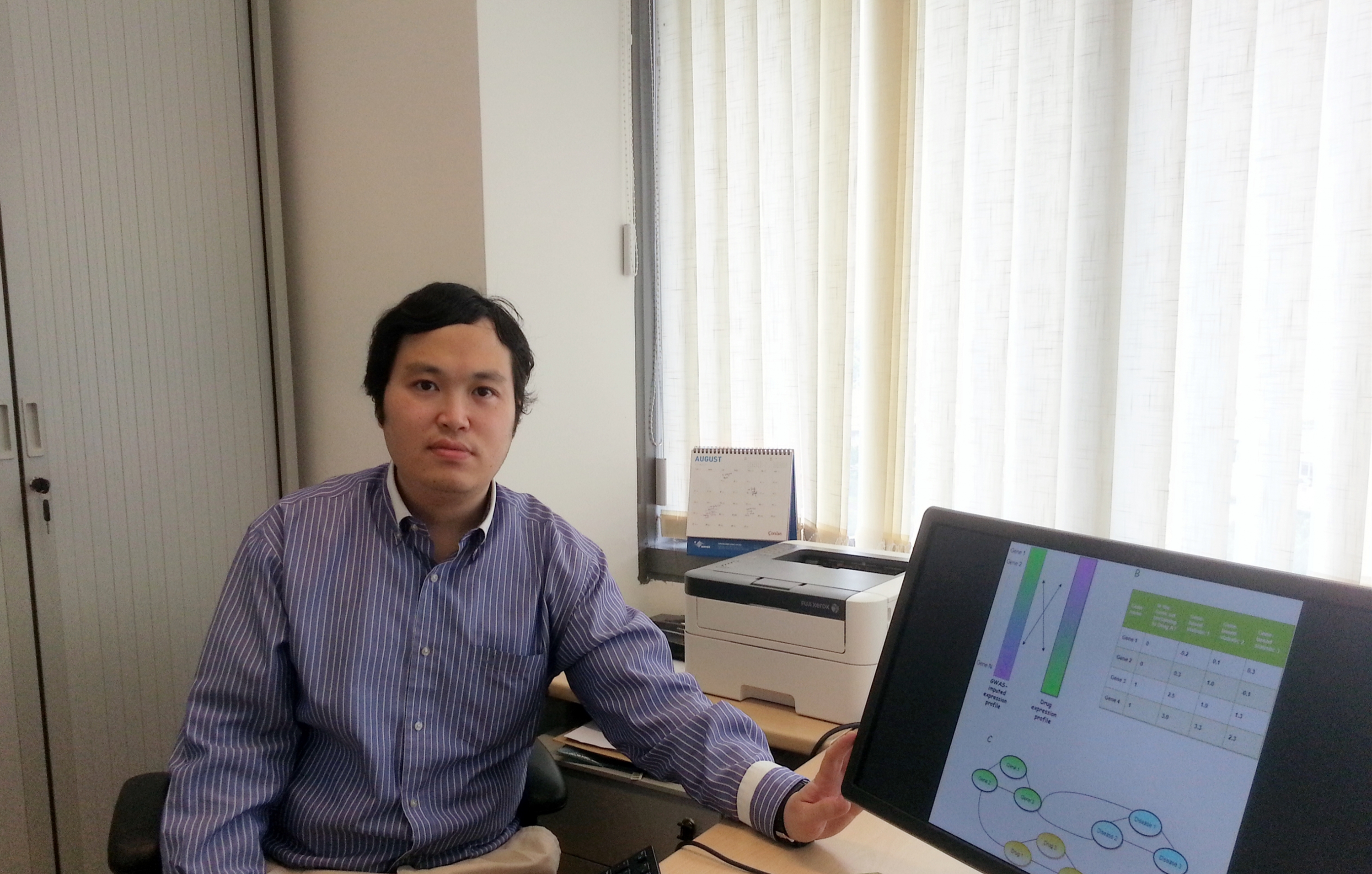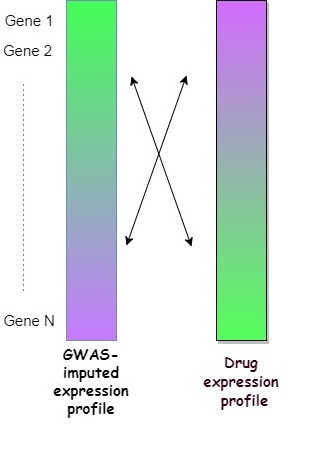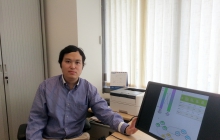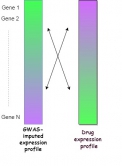CUHK
News Centre
CUHK proposes bioinformatics approach to reposition drugsAnti-inflammatory and lipid-lowering agents may treat psychiatric disorders
A research team led by Prof. Hon-Cheong SO, Assistant Professor, School of Biomedical Sciences at The Chinese University of Hong Kong (CUHK), has generated a list of drugs that may potentially be repurposed to treat psychiatric disorders. This was done by applying bioinformatics approach to analysing data from the genome-wide association studies (GWAS) of seven psychiatric disorders and the expression profiles of 1,309 existing drugs. Prof. So and his team hope that this approach can be applied to other complex diseases, especially those with few known treatments, providing additional choices of medications. The research findings have just been published in the top international scientific journal Nature Neuroscience.
Genotyping technologies entered a period of rapid growth in the last decade and GWAS has played a major role in unraveling the genetic bases of complex diseases. GWAS is a study approach which scans the genome for millions of common variants associated with complex diseases. Even though over 3,000 GWAS covering hundreds of complex traits have been performed worldwide, few studies have investigated the potential for making use of this vast amount of data in drug discovery. This research can make up the shortfall.
Analysing potential novel indications of known medications by expression profile comparison
Prof. So and his team extracted GWAS data of psychiatric disorders and inputted the expression profile of seven psychiatric disorders, including schizophrenia, bipolar disorder, major depressive disorder, anxiety disorders, Alzheimer’s disease, autistic spectrum disorders and attention deficit hyperactivity disorder. At the same time, the team obtained the expression profile of 1,309 drugs from the Connectivity Map database. They compared the two sets of expression profiles to look for reverse expression patterns and this finally identified a number of candidates for drug repositioning. For example, non-steroidal anti-inflammatory agents like aspirin and a cyclooxygenase-2 (COX-2) inhibitor were prioritised as candidates for bipolar disorder and schizophrenia; a lipid-lowering agent of the statin class was listed as a candidate for bipolar disorder. However, the team emphasised that verification of the highlighted candidates in further pre-clinical and clinical studies is required.
According to The Hong Kong Mental Morbidity Survey 2010-2013, conducted jointly by the Hospital Authority, and the Department of Psychiatry in both CUHK and The University of Hong Kong, 13.3% of Chinese adults in Hong Kong have mental disorders, bringing a heavy burden to the public health system. Prof. So said, “Drug discovery in the field has largely been stagnant for the past two decades or so. By employing computational drug repositioning, we hope to provide more choice of medications for psychiatric disorders and diseases with few known treatments, and to reduce the time and cost of drug invention. In addition, the proposed method may also help find out the efficacy of Chinese medicine and drugs on unknown mechanisms or targets.”
The research team hopes that the current study will open a new avenue for drug discovery and repositioning using human genomics data, and that the repositioning candidates will serve as a useful resource for other researchers to pursue in-depth investigations.
Prof. Hon-Cheong SO and his team compare the expression profile of psychiatric disorders and drugs, to analyse potential novel indications of known medications







